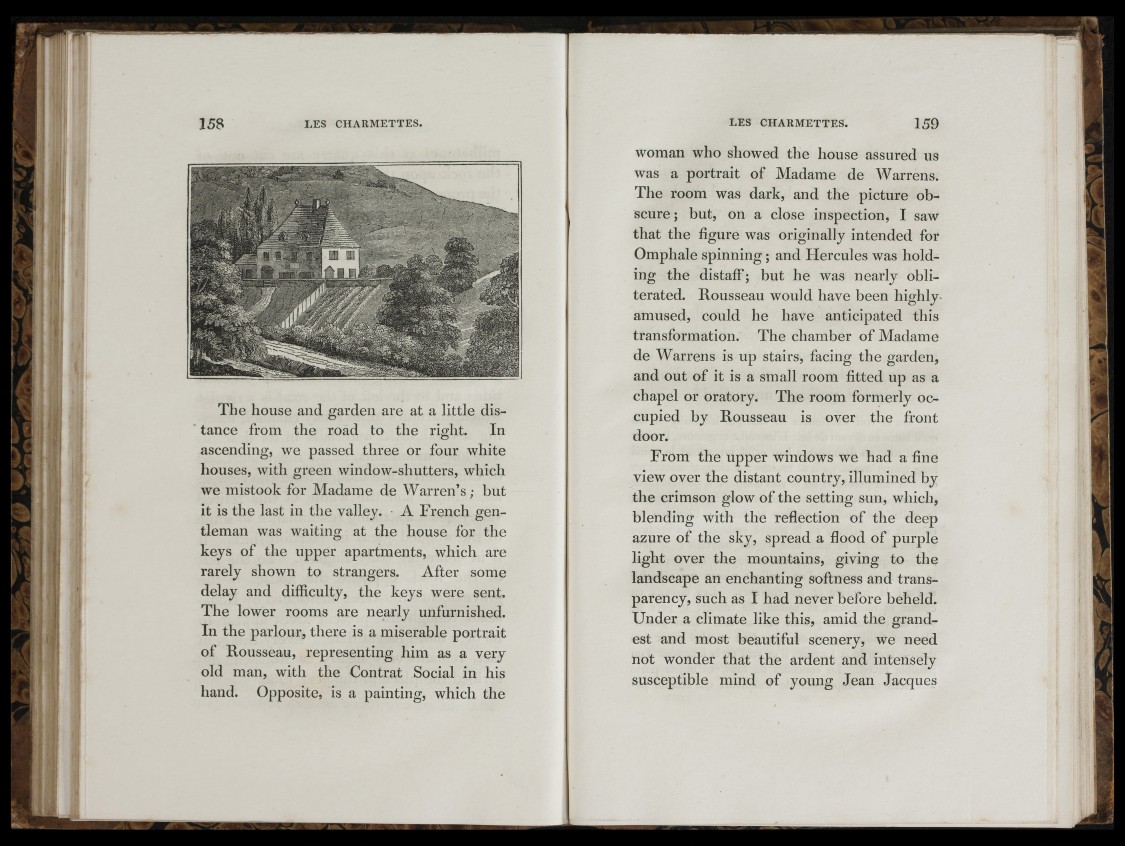
The house and garden are at a little distance
from the road to the right. In
ascending, we passed three or four white
houses, with green window-shutters, which
we mistook for Madame de Warren’s ; but
it is the last in the valley. A French gentleman
was waiting at the house for the
keys of the upper apartments, which are
rarely shown to strangers. After some
delay and difficulty, the keys were sent.
The lower rooms are nearly unfurnished.
In the parlour, there is a miserable portrait
of Rousseau, representing him as a very
old man, with the Contrat Social in his
hand. Opposite, is a painting, which the
woman who showed the house assured us
was a portrait of Madame de Warrens.
The room was dark, and the picture obscure
; but, on a close inspection, I saw
that the figure was originally intended for
Omphale spinning ; and Hercules was holding
the distaff; but he was nearly obliterated.
Rousseau would have been highly-
amused, could he have anticipated this
transformation. The chamber of Madame
de Warrens is up stairs, facing the garden,
and out of it is a small room fitted up as a
chapel or oratory. The room formerly occupied
by Rousseau is over the front
door.
From the upper windows we had a fine
view over the distant country, illumined by
the crimson glow of the setting sun, which,
blending with the reflection of the deep
azure of the sky, spread a flood of purple
light over the mountains, giving to the
landscape an enchanting softness and transparency,
such as I had never before beheld.
Under a climate like this, amid the grandest
and most beautiful scenery, we need
not wonder that the ardent and intensely
susceptible mind of young Jean Jacques
f- ;l
I mil